The state goverment's new Aboriginal Cultural Heritage Act has left residents concerned.
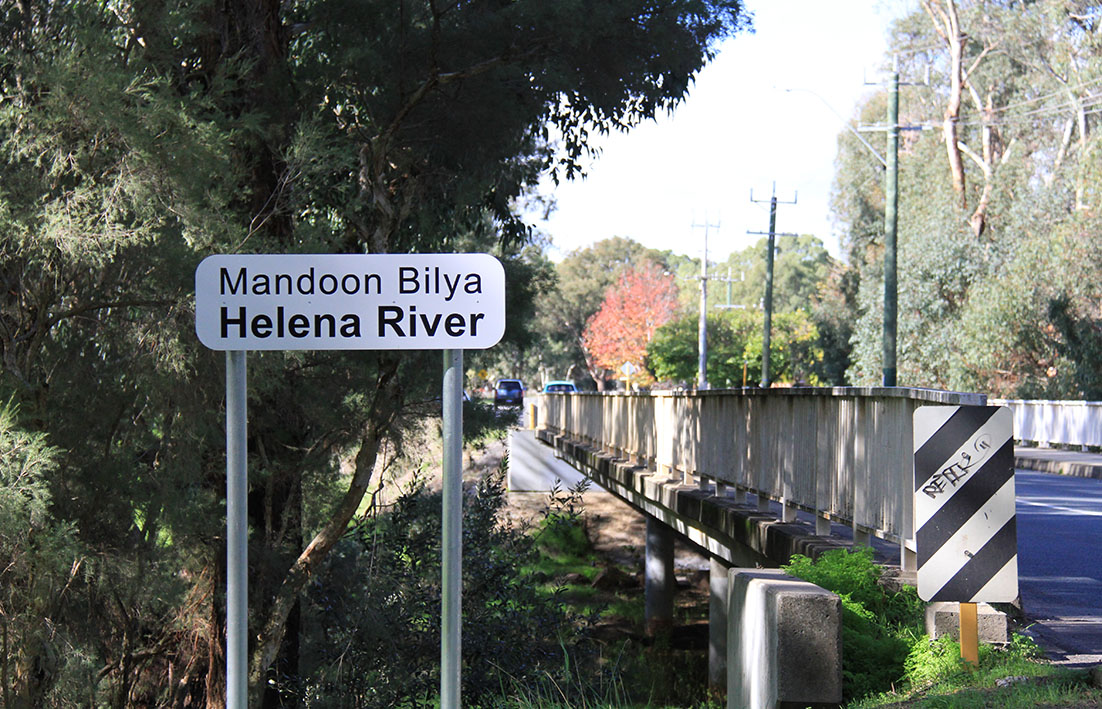
THE amended Aboriginal Heritage Act 1972 has finally replaced the controversial 2021 Aboriginal Heritage Act.
The amended 1972 Act came into law November 15, weeks after the 2023 Aboriginal Heritage Legislation Amendment and Repeal Bill passed parliament.
The 2023 Bill received Royal Assent on October 24, and was proclaimed November 1.
WAFarmers chief executive officer Trevor Whittington said it was worth the wait to allow for the government to get the laws right.
Mr Whittington said under the 2021 Act the community was unsure as to what constituted cultural heritage, and welcomed the government’s survey program to identify significant Indigenous cultural heritage sites.
“They’ve accepted our suggestion that they should actually go out and identify these sites, but the private property holders shouldn’t have to pay for it,” he said.
“Heritage evolves over time, and so one of the other challenges was when does it stop evolving?”
Mr Whittington said there were significant Indigenous cultural sites across the southwest, the great southern region and the Wheatbelt, but remained sceptical as to whether the government would follow through with its plan to survey them all.
“That’s the next big question, I expect the government will lose interest fairly rapidly, because they will have to pay for it – but it’s a community benefit, why shouldn’t they?”
Speaking before the Lower House, Aboriginal Affairs Minister Tony Buti said the state government will undertake a 10-year survey program to identify Aboriginal cultural heritage in high priority areas.
“To clarify, surveys in this program will be funded and undertaken by the government through the Department of Planning, Lands and Heritage,” Dr Buti said.
“I also add that all surveys will require the permission of the landowner and will be scoped and undertaken in consultation with the relevant Aboriginal people.
“We listened to community feedback and worked to keep the process for managing and protecting Aboriginal cultural heritage simple.
“The restored Act, with the important amendments, will help prevent another Juukan Gorge tragedy without adding complexity.”
When the 2021 Act was due to be introduced a petition with 29,714 signatures was presented to the Legislative Council calling for a delay in its implementation.

THE Aboriginal Heritage Legislation Amendment and Repeal Bill 2023 has passed parliament as the state government admits it has spent more than $1 million on the 2021 Aboriginal Cultural Heritage Act roll out.
After the Upper House third reading was agreed to on October 17, Upper House leader and Labor South Metropolitan MLC Sue Ellery, representing Aboriginal Affairs Minister Tony Buti, was questioned by Liberal Mining and Pastoral MLC Neil Thomson on the costs associated with the Aboriginal Cultural Heritage Act 2021.
Ms Ellery said the Department of Planning, Lands and Heritage had spent $890,920 on community workshops, and the Department of Premier and Cabinet had spent $445,866 on costs associated with 2021 Aboriginal Cultural Heritage Act’s development.
In relation to the community workshops, Ms Ellery said they provided consultation and community feedback which informed the updated bill.
During the second reading of the bill in the Upper House, the opposition alliance again tried to split the bill to allow for the immediate repeal of the Aboriginal Cultural Heritage Act 2021.
Mr Thomson moved a motion without notice on October 10 to try and split the bill, but the motion was lost with nine in favour and 17 sitting members voting against.
Dr Buti said as the bill has passed through parliament the government will be looking to implement the new system as soon as practically possible.
“We listened to community feedback and worked to keep the restored process for managing and protecting Aboriginal cultural heritage simple – to focus on important amendments that will prevent another Juukan Gorge tragedy.”
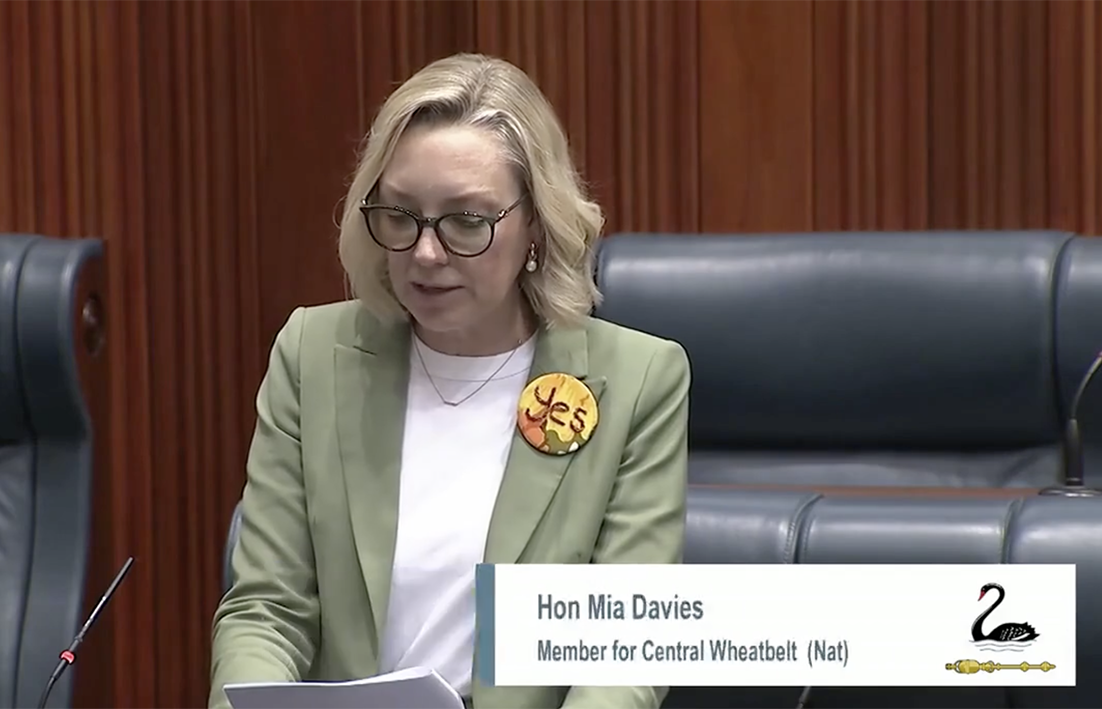
THE Aboriginal Heritage and Repeal Bill 2023 has moved through into the Legislative Council before debate on the Bill was adjourned until October 10 for parliamentary recess.
The Heritage Bill passed the Legislative Assembly on September 21 after it was debated by the Liberal National opposition alliance and the sitting Labor majority.
Speaking before the Legislative Assembly, Aboriginal Affairs Minister Tony Buti said the amendments made to the Bill are consistent with the opposition’s view of protecting Aboriginal cultural heritage while also ensuring another disaster like Juukan Gorge does not happen again.
Mr Buti said amendments to the Bill included the removal of landowners conducting heritage surveys, with Mr Buti stating the government would conduct its own 10-year heritage survey instead.
“We will develop and implement a 10-year program of Aboriginal heritage surveys in high-priority areas.
“To clarify, surveys in this program will be funded and undertaken by the government through the Department of Planning, Lands and Heritage. I also add that all surveys will require the permission of the landowner and will be scoped and undertaken in consultation with the relevant Aboriginal people.
“The survey program will identify the location of Aboriginal heritage sites, revisit Aboriginal heritage sites and known heritage places to remap the boundaries accurately and precisely, and identify locations with no sites of Aboriginal cultural heritage,” he said.
Mr Buti said the amendments agreed to in the Legislative Assembly included giving Native Title parties the same right of review through the State Administrative Tribunal.
“The Bill before us, the amendments, which by all accounts the opposition agrees with and has not opposed, will ensure gag clauses can no longer be used, so they cannot prevent Native Title parties from applying to make submissions to the State Administrative Tribunal or submissions in relation to a section 18 notice,” he said.
Mr Buti said an expert advisory body will also make recommendations to section 18 notices and that the advisory body will also have female and male Aboriginal co-chairs and majority Aboriginal representation, with Ken Wyatt and Irene Stainton some of the first people on the panel.
The Bill passed through after Central Wheatbelt MLA Mia Davies moved a motion in the Legislative Assembly to split the Bill into two, which could have allowed for the Aboriginal Cultural Heritage Act 2021 to be repealed sooner.
Ms Davies told the Assembly the community was still unsure of their obligations and that there is unanimous support for the 2021 Act to be repealed.
“We all agree, including the government, that it needs to be removed. However, we are concerned about the less than seamless way that the new legislation was brought to the Parliament for consideration.
“What we want, and what we are giving the government the ability to move forthwith, is the immediate repeal of the failed Act.
“Although the government will continue to say these are simple and effective amendments, I and other members of the opposition have had the experience of trying to deal with industry stakeholders who have consulted with me over the last few weeks about the development of regulations and guidelines.
“They are still trying to wrap their heads around what it will mean and the consequences of the package as a whole,” she said.
The Bill split was supported by all six members of the Liberal National opposition alliance, while the 42 sitting Labor members voted against.
The Bill moved to the Legislative Council after the third reading was concluded.
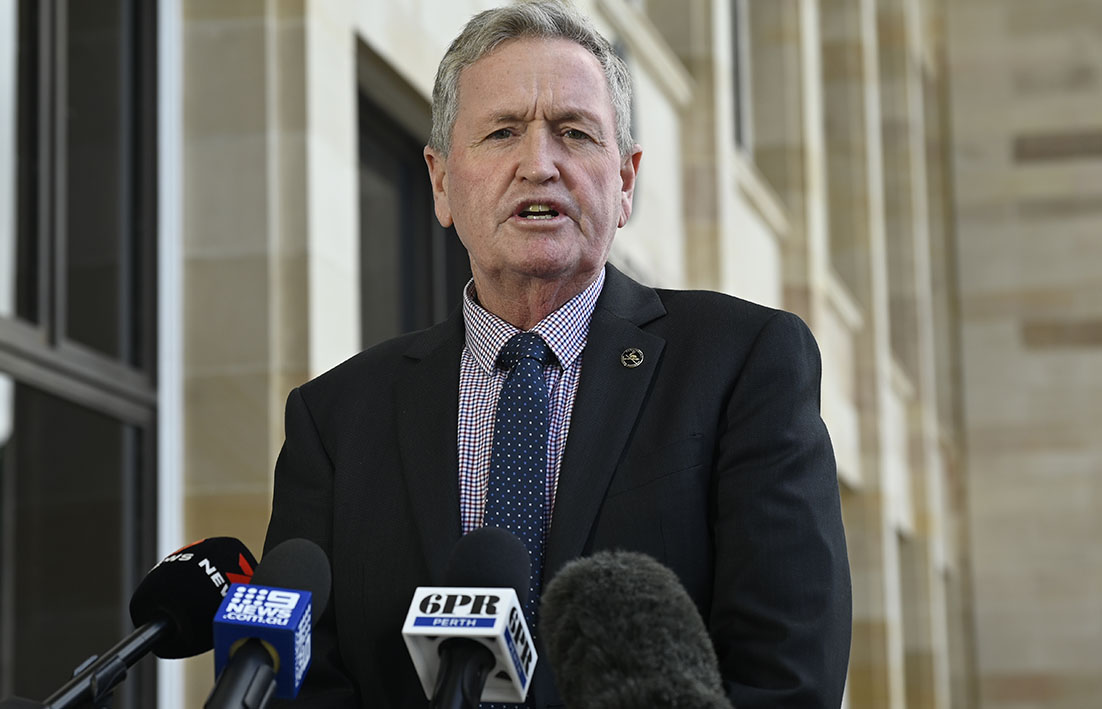
A MOVE by shadow minister for Aboriginal Affairs Mia Davies MLA to split the Aboriginal Heritage Legislation Amendment and Repeal Bill 2023 in order for the Aboriginal Cultural Heritage Act 2021 to be immediately repealed has been rejected by the WA Labor Party.
All six of the Liberal National opposition members supported the motion, while the 42 sitting Labor members of the Legislative Assembly voted against it.
Speaking before the debate, opposition leader Shane Love said that landowners wanted certainty on their current obligations.
Mr Love said that the state government is again trying to rush the Repeal Bill through parliament while the opposition is seeking clarity surrounding the amendments the government is making.
“The government is clearly not yet on top of what’s required to make a successful transition back to the 1972 Act, and we believe they need to take the time to do that, to avoid another damaging episode like we had in July of this year” he said.
WA Liberal leader Libby Mettam MLA said the community was still confused about their current obligations surrounding what they can and can’t do on their own properties.
“It’s extraordinary that Western Australians are still waiting for clarity, a month after the WA Labor government promised to change them.
“Western Australian’s remain in limbo about their obligations while the government scrambles to fix the mess it created.
“Splitting the legislation into two parts and repealing the 2021 laws is a sensible approach, and will allow time to get the new regulations right,” she said.
The state government released the new regulations one week out from start of debate around the Repeal Bill on September 13. Debate for the Bill started on September 19.
Minister for Aboriginal Affairs Tony Buti said the Repeal Bill will support a return to an improved Aboriginal Heritage Act 1972.
“The Cook government listened to community feedback and announced our intention last month to put an alternate legislation in place.
“We are well advanced in delivering on that commitment with a Bill pending debate in Parliament, and draft regulations and key policy documents developed,” he said.
Mr Buti said the new regulations will give traditional owners and section 18 applicants certainty through timeframes, with new consultation policies setting out new expectations on how to engage with Aboriginal people about their heritage.
“We have worked to keep the restored process for managing and protecting Aboriginal cultural heritage simple – to focus on important amendments that will address key concerns without adding complexity and confusion.”

LOWER house leader David Templeman has said the debate on the revised Aboriginal Cultural Heritage Act will take place between September 19 to 21.
The Opposition is calling for the Aboriginal Cultural Heritage Legislation Amendment and Repeal Bill 2023 to be split in order to allow the immediate repeal of the 2021 Act.
Opposition Aboriginal Affairs spokeswoman Mia Davies asked for the Bill to split in question time to allow for immediate repealing of the 2021 Act, which would then give government more time to debate another bill with amendments later in the year.
Opposition leader Shane Love MLA said the state government had an important lesson to learn from the botching of the 2021 Act and needs to move quickly to address community concerns.
“WA Labor has to show they have learned their lesson after the debacle of the 2021 legislation and need to heed the premier’s instruction to be a humble government,” he said.
Aboriginal Affairs Minister Tony Buti said the draft regulations included timeframes which would give certainty to traditional owners and proponents about the section 18 application process.
“Our aim is to implement the new system as soon as practically possible once the Bill is considered and passed by the house,” Dr Buti said.
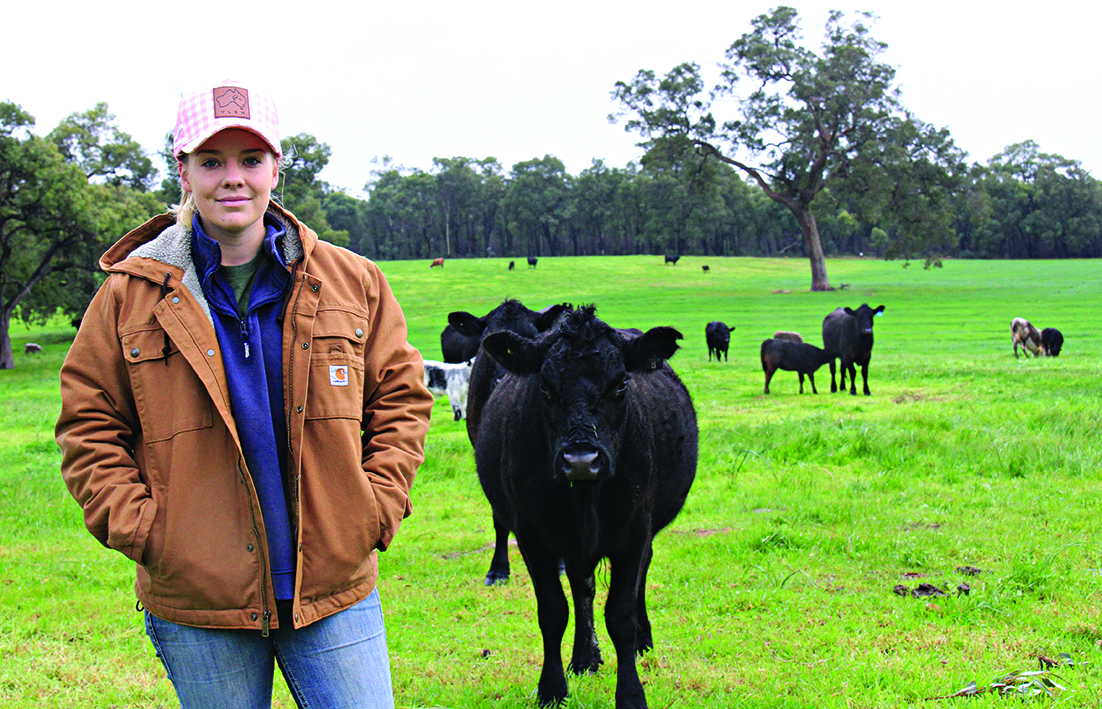
TUESDAY was a busy day at Parliament House, as hours before approximately 700 farmers descended on the building to present a motion calling on changes to the Aboriginal Cultural Heritage Act, the state government repealed the Act all together.
WAFarmers president John Hassell said the intent of presenting the motion was to show the public that farmers were unhappy with the new Act.
“WAFarmers put together a list of recommendations the government should take on board when making changes to legislation to make it workable.
“We knew something was in the air, whether it was repealing the Act or changes to the Act to make it work.
“They’ve repealed the Act, and they’re going back to the drawing board, and we still need to see some major changes to make it workable,” he said.
Mr Hassell said the motion that was due to be presented to opposition leader Shane Love was the result of community meetings with farmers and concerned citizens in Wagin and Katanning.
“We then took those motions and had those motions between WA Grains Group, Pastoralists and Graziers Association and WAFarmers.
“Then we took those motions up to Parliament House with a view of presenting them to parliament,” he said.
The state government said the original Aboriginal Heritage Act of 1972 will be restored in its place with amendments, which the state government said will prevent another incident like Juukan Gorge happening again.
The new amendments to the 1972 Act include the removal of heritage surveys and approval processes for everyday landowners wishing to undertake works on their property, a newly formed Aboriginal Cultural Heritage Council which will make recommendations to the minister, and it now allows proponents and Native Title parties the same right of review under the Section 18 process.
Under the changes the premier also can call in a decision of ‘state significance’ to act within the interests of all Western Australians.
The move to revert to the original laws comes from legal advice from the Solicitor General John Quigley MLA.
“By repealing the legislation, it means that all the extra burdens and obligations placed on landowners have now been removed.
“That means all landowners, be they freehold, leasehold, licensee, invitee or citizen, at large have one simple obligation: that is to not knowingly damage an Aboriginal cultural heritage site, which has been the law since 1972,” Mr Quigley said.

SEVENTY Hills residents have vented their frustrations and aired their concerns about the new Aboriginal Cultural Heritage Act at a Department of Planning, Lands and Heritage information session held at Gidgegannup Town Hall.
DPLH assistant director general of heritage and property services Vaughan Davies delivered the information session for the residents, as state Labor members Darren West and Jessica Shaw helped to answer questions and moderate the discussion.
Gidgegannup Progress Association Chairperson Sally Block said the presentation was badly prepared and should had been delivered before the new Act came into place.
She said the Perth Hills region had many known Aboriginal cultural heritage sites such as Wooroloo Brook or the Avon and Swan rivers, and many landowners had those sites or tributaries going through their property.
“This is going to affect them, and people are concerned about this,” she said.
Mrs Block said the residents of Gidgegannup needed reassurance and definite guidance about what they are required to do under the new Act.
“You could see concern in the room from a lot of people,” she said.
“I was very concerned about the language that was used throughout the presentation.
“There were so many words like ‘might, probably, possibly.’
“The definites were not there,” she said.
Mrs Block said the lack of community consultation in the hills surrounding the implementation of the Act was worrying.
“It would’ve been very easy to have had consultation with us in the outer-metro area, and that’s not just particularly Gidgegannup,” she said.
DPLH assistant director general of heritage and property services Vaughan Davies stressed throughout the presentation that ‘like-for-like’ activities are exempt under the new Act, urged people to use their common sense, and insisted the state government has tried to make protecting Aboriginal cultural heritage easier for everyone.
Mr Davies said the new laws only apply when there is a risk of harm to Aboriginal cultural heritage, and if landowners were to discover Aboriginal heritage on their land, the new Act states there is no duty for the landowner to maintain the heritage.
“There’s nothing in the Act that says you have to do anything with Aboriginal cultural heritage unless you want to impact it, there’s no maintenance requirements or anything like that,” he said.
“Depending on the size of your land, and your appetite for celebrating and protecting and managing Aboriginal cultural heritage, we’d invite people to [maintain it], but there’s no requirement.”
Mr Davies said the new act makes it illegal to make false heritage claims, and said there are minimum requirements of what will constitute heritage.
He said that the DPLH will have to know what the heritage is, where it is, and how it can be harmed before it could be added to the heritage register.

Published Echo News June 30, 2023
THE West Australian Local Government Association has supported a delay in the implementation of the Aboriginal Cultural Heritage Act as far back as December 2022.
WALGA’s phase three co-design submission documents for the new Act – which was endorsed by the WALGA state council on December 23, 2022 – states that “WALGA supports a delay in the start of the Act to allow time for the key bodies under the structure, being the Local Aboriginal Cultural Heritage Services and Aboriginal Heritage Council, for capacity building and to be adequately established.”
WALGA president Karen Chappel said that the organisation is “working constructively with the state government to ensure the implementation of the Aboriginal Cultural Heritage Act is appropriately supported by guidance materials and support from the Department of Planning, Lands and Heritage.”
WALGA’s phase three co-design submission documents featured 23 recommendations, with the 23rd recommendation asking for the DPLH to develop supporting documentation for local governments to better understand their new obligations under the Act.
DPLH was contacted for comment to see if this documentation was supplied to local governments.
Mrs Chappel said that WALGA’s advocacy led to the exemption of activities such as the maintenance of waterways and coastlines to rectify erosion, maintaining existing infrastructure in a way which does not involve ground disturbance beyond that which was originally disturbed in construction, as well as any emergency management activity intended to prevent loss of life.
“WALGA’s advocacy on this matter has resulted in some changes to the activity categories, with consideration now given to many every day and emergency works that local governments undertake,” she said.
The State Government appointed former Hasluck MHR Ken Wyatt to the Aboriginal Heritage Council.
Aboriginal Affairs Minister Tony Buti said the Act is ready for implementation on July 1.
He said public workshops and education sessions will be run after the Act is implemented.
“The new process is in with the level of disturbance and the risk of impact or harm,” he said.
“Where there is no Aboriginal cultural heritage present, or no risk of harm, no approval is required.”
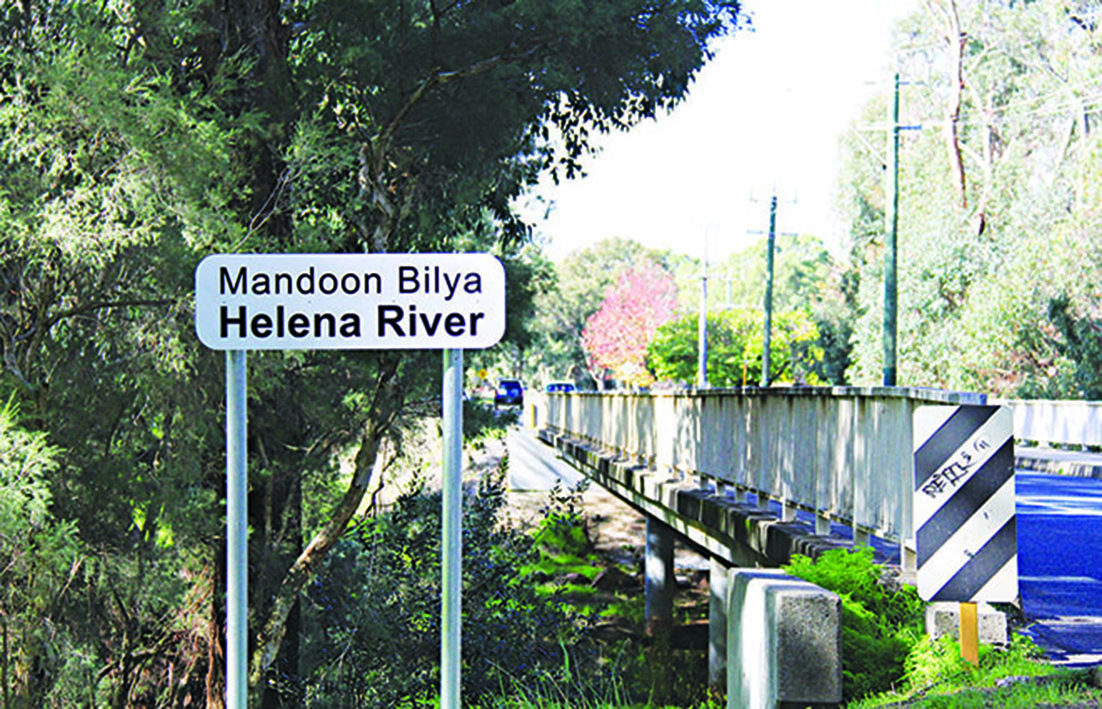
Published Echo News June 23, 2023
THE Department of Planning, Lands and Heritage says the “Western Australian government is ready to transition to the new Aboriginal cultural heritage legislation on July 1,” despite opposition parties and a petition calling for a delay of the new act’s implementation.
In Midland, on the current DPLH map, there are six registered Aboriginal sites, alongside four registered heritage sites, with countless others listed for the surrounding suburbs.
The DPLH spokesperson said a map of protected areas will be available on July 1 at the DPLH website.
Shadow minister for Aboriginal Affairs Mia Davies said “the process of introducing this act has been shambolic from beginning to end.
“The opposition has been calling for the delay of the act coming into effect and have raised serious concerns about the lack of information and readiness of both government and key stakeholders to make sure the intent of the act can be delivered,” she said.
The DPLH said the new act will make it illegal to interfere with Aboriginal cultural heritage without proper authorisation, and seeks to bring Aboriginal organisations into the decision making process where their cultural heritage was at risk of interference.
Residential properties under 1100sqm will be exempt from the act, and residential properties over 1100sqm will also have exemptions applied, such as installing a patio or a pool.
Farmers conducting ‘like-for-like’ activities are also exempt, which “means activities that are the same in extent, height and depth as existing activities carried out can continue,” a DPLH spokesperson said.
The DPLH has classed acts such as these as a ‘minor activity,’ and no approval is required to undertake them. Other activities exempt include constructing a home or general maintenance, alongside activities such as ploughing and seeding existing paddocks, or maintaining existing water, electricity or other infrastructure.
Ms Davies said one of the biggest challenges currently facing the act is making sure people know they are in a protected area.
“The map and register kept by the government is incomplete and inaccurate,” she said.
“There are a number of exempt activities under the new act, including ‘like-for-like’ activities on farms.
“However, there is significant confusion regarding the responsibilities of landowners in relation to land disturbing activities that may trigger the act,” she said.
The DPLH said the new act will make “activities that involve moderate to high level ground disturbance” require an Aboriginal cultural heritage management plan, which the DPLH said landowners will have to negotiate with relevant Aboriginal parties.
This includes activities in which major land clearing will take place, or the construction of a new mine site.
The DPLH said ‘Medium’ activities – which involve low-level ground disturbance – will have to be undertaken with due diligence on behalf of the landowner alongside them applying for a permit from their Local Aboriginal Cultural Heritage Service.
A spokesperson for the DPLH said that “LACHS have not yet been designated.
“This new system for managing Aboriginal cultural heritage is not reliant on LACHS being established.
“Native title organisations – such as the South West Regional Corporations – will be the primary point of contact, many of which have established governance and decision-making processes in place,” they said.
The new act has been bought into place after Rio Tinto destroyed Juukan Gorge in 2020, a sacred place to the traditional owners of the land.